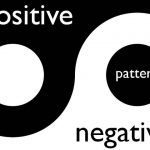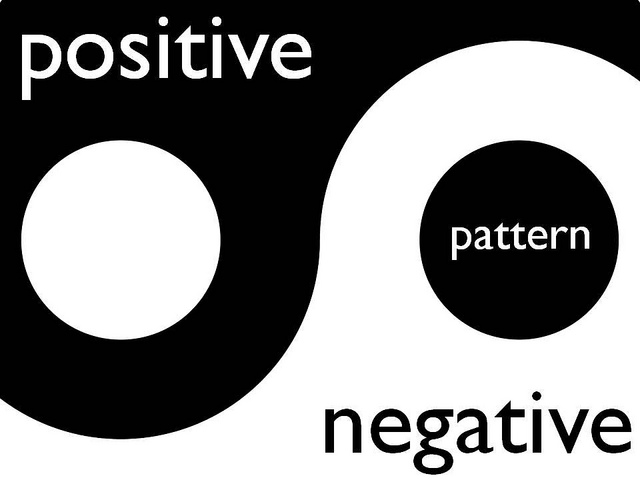
Image Credit: bluekdesign
If I had to guess what kind of feedback you like to get, I’d be willing that just like the rest of us you like positive feedback about your manager skills the best. However, somewhat surprisingly it turns out that there is a type of manager who likes a different type of feedback. Negative feedback. Most of us dislike negative feedback and we go out of our way to avoid getting it or giving it out. We fear that if we give someone negative feedback it is going to cause dejection, anger, and may even end up making them cry. That’s why it’s so amazing that some managers actually seek out negative feedback.
The Power Of Negative Feedback
There do exist some managers who seek out negative feedback. These managers more often than not are strivers who think that they just might be able to improve both their abilities and their skills based on what other people tell them about themselves — it’s almost like a form of manager training. These people tend to have personal goals that they are trying to achieve. They view criticism as a tool that is going to help them to reach their goals instead of viewing it as a setback that will prevent them from getting what they want.
These types of managers tend to have close friends at work and they have a strong sense of both self-control and self-awareness. For most of us, it can be very natural to resist criticism because it makes us feel bad. Often we can become so threatened by criticism that we’ll start to avoid the person who has given it to us. This is where the difference between the majority of us and those who seek out negative feedback appears. The highly self-aware managers will be able to push through the discomfort that they feel from criticism and ask to get feedback no matter what.
The managers who are able to deal with criticism are boosted by the belief that with a little bit of effort they can become better at their job and smarter. Those managers who believe that their intelligence is a fixed quantity are more likely to be the ones who seek out the company of people who will provide them with affirmation and not criticism.
How To Use Negative Feedback
Managers who have close ties with the people that they work with are the ones who will look for people who will provide them with tougher reviews of their work. Once they get this feedback, they’ll make changes based on it. Managers who view themselves as being experts in their field are the ones who are motivated by criticism. They tend to view feedback as being a sign of how much progress they have been able to make towards their goals.
Managers who are just starting out are the ones who are more likely to go looking for praise. Depending on if they can find this praise, they will use this as a sign that they should stay committed to their goals. The experts tell us that if we get criticism, we should not immediately react to it. Instead, the right thing to do is to take some time to ponder it before we respond to it.
When managers find themselves in a situation where they can critique a team member, they can help out their team members by setting an example and asking members of the team for feedback. Treat it like a form of team building. Every day is different, but managers need to realize that team members will be more open to receiving criticism earlier in the day before they have become worn down. When delivering criticism, managers need to remember to tell team members that they can learn and change. Don’t tell the members of your team to not make any mistakes (nobody can do that), instead tell them that you believe in them and that you have high expectations of them and you believe that they can reach these.
What All Of This Means For You
We all like positive feedback and we generally don’t like negative feedback. Considering how hard most of us try to find ways to have people tell us things that we want to hear, it can be amazing to discover that there are managers who actively seek out negative feedback.
Managers who go looking for negative feedback are the ones who think that getting this kind of feedback will allow them to become better based on what people tell them about themselves. Most of us try to avoid getting negative feedback. Managers who seek out negative feedback are able to push through it and get the feedback that they want. Managers who want negative feedback will look for the people who will give them tough reviews of their work. They use this as a sign of how much progress they have made. New managers generally only go looking for praise. When a manager can give out a tough review, they need to make sure that they do it in the morning and that they tell their team members that they believe that they can change.
In order to become better managers, we all need to get feedback based on how we are performing. Although positive feedback is always good, there are cases in which some managers seek out negative feedback in order to improve themselves. These hardy souls know how to interpret what they will be told and use it to help them to achieve their goals. All of us can learn something from them and if we can put up with some negative feedback, we just might be able to become better managers.
– Dr. Jim Anderson
Blue Elephant Consulting –
Your Source For Real World IT Management Skills™
Question For You: Do you think that it is possible to get too much negative feedback?
![]() Click here to get automatic updates when The Accidental IT Leader Blog is updated.
Click here to get automatic updates when The Accidental IT Leader Blog is updated.
P.S.: Free subscriptions to The Accidental IT Leader Newsletter are now available. Learn what you need to know to do the job. Subscribe now: Click Here!
What We’ll Be Talking About Next Time
Ok manager, so you are in charge of a team. What would you like to do with that team? If you are like most of us, you’d like to be able to use your manager skills to create a happy, very productive team. The studies have shown us that happy teams score higher on productivity, engagement, loyalty, and creativity. They also take fewer sick days. Who wouldn’t want a team like this? Now, just exactly how do we go about creating a team like this without any manager training on how to do it?

